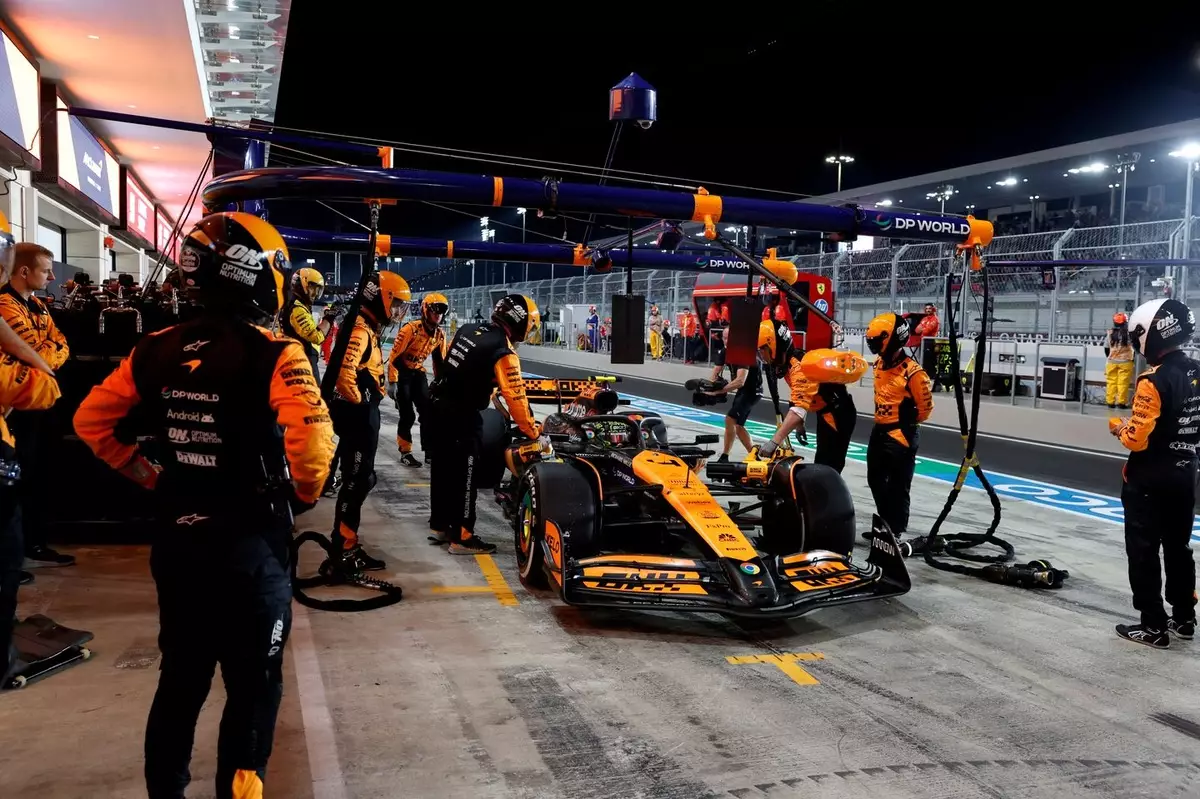As the world of Formula 1 racing becomes increasingly competitive, the handling of penalties has come under scrutiny. Recently, a critical event unfolded during the Qatar Grand Prix involving Lando Norris of the McLaren team, igniting discussions over the appropriateness and consistency of penalties enforced by the FIA. With team principal Andrea Stella voicing concern about the severity of a 10-second stop-go penalty, it raises essential questions about how disciplinary measures can impact not just individual races but the championship as a whole.
During the Qatar GP, Lando Norris faced a significant penalty after failing to reduce his speed when double yellow flags were displayed due to Alex Albon’s car situation. While it is crucial for drivers to adhere to these warnings for safety reasons, McLaren’s stance is that the punishment dealt to Norris was disproportionate to the infraction. Andrea Stella’s response emphasizes the need for the FIA to adopt a more nuanced approach to penalties, lamenting that a standardized response often fails to capture the gravity— or lack thereof—of specific infractions.
The ramifications of such penalties extend beyond the immediate race, potentially skewing the championship standings. Stella stated that the FIA’s current approach to penalties is “worrying,” suggesting that unless a review of the disciplinary framework is undertaken, teams may face unpredictable and far-reaching consequences. This highlights a pressing issue: the balance between maintaining safety and ensuring fairness in competition.
Stella’s concerns resonate not just within McLaren or with Norris but likely reflect sentiments held by other teams as well. The concept of proportionality is fundamental to justice in any sport. In this case, a penalty that feels excessively harsh can lead to a loss of trust in the governing body responsible for enforcing the rules, posing a risk to the integrity of the competition.
There are numerous instances in sports where penalties seem to be applied arbitrarily or without sufficient justification. Formula 1, with its high stakes and intense rivalries, should be particularly vigilant against such inconsistencies. A fundamental overhaul of how penalties are decided and enforced could ensure that a driver’s fate in a race—or potentially a championship—does not hang in the balance due to a questionable judgment call.
McLaren isn’t isolated in its dissent regarding penalties; Mercedes team principal Toto Wolff emphasized the brutality of the sanctions witnessed during the same race, including a drive-through penalty for Lewis Hamilton for an infraction involving a safety car. The collective discontent raises the question: Are the FIA’s disciplinary measures serving the sport effectively, or are they fostering a climate of fear among drivers and teams?
Wolff further echoed the need for consistency, which is essential not only for the credibility of race officials but also for drivers and teams who invest so much effort and resources into their performance. The crux of the issue lies in creating a system that is transparent and based on consistent criteria. If different teams perceive the rules as being enforced unevenly, it can lead to disillusionment and disengagement from the sport.
For genuine improvement, it’s crucial that the FIA opens channels for dialogue among teams and stakeholders. Stella emphasizes that the focus should not solely be on reversing Norris’s penalty but rather on fostering a more equitable framework moving forward. By implementing a review of penalty applications, the FIA can assure teams and fans alike of the commitment to fairness and the principles that underpin Formula 1 racing.
Moreover, an evaluation could result in an improved set of guidelines that clarify the circumstances under which penalties are applicable. Transparency in how penalties are handled can re-establish trust in the governing body and assure teams that the integrity of the championship is upheld.
The recent concerns expressed by McLaren and others about penalty applications signal an urgent need for reform. The integrity of Formula 1 racing, coupled with a commitment to fairness and consistency, should remain at the forefront as the FIA reviews its disciplinary processes. Such reforms will not only enhance the sport but will also help preserve its rich tradition and competitive spirit.


Leave a Reply